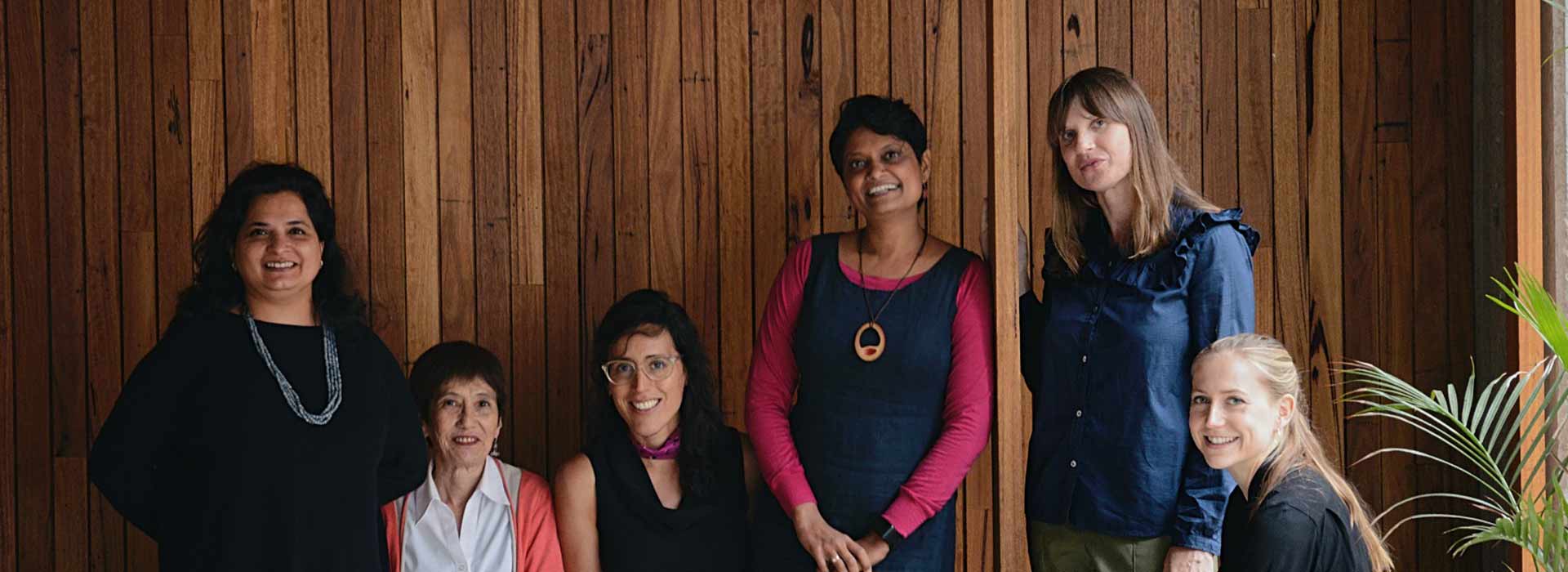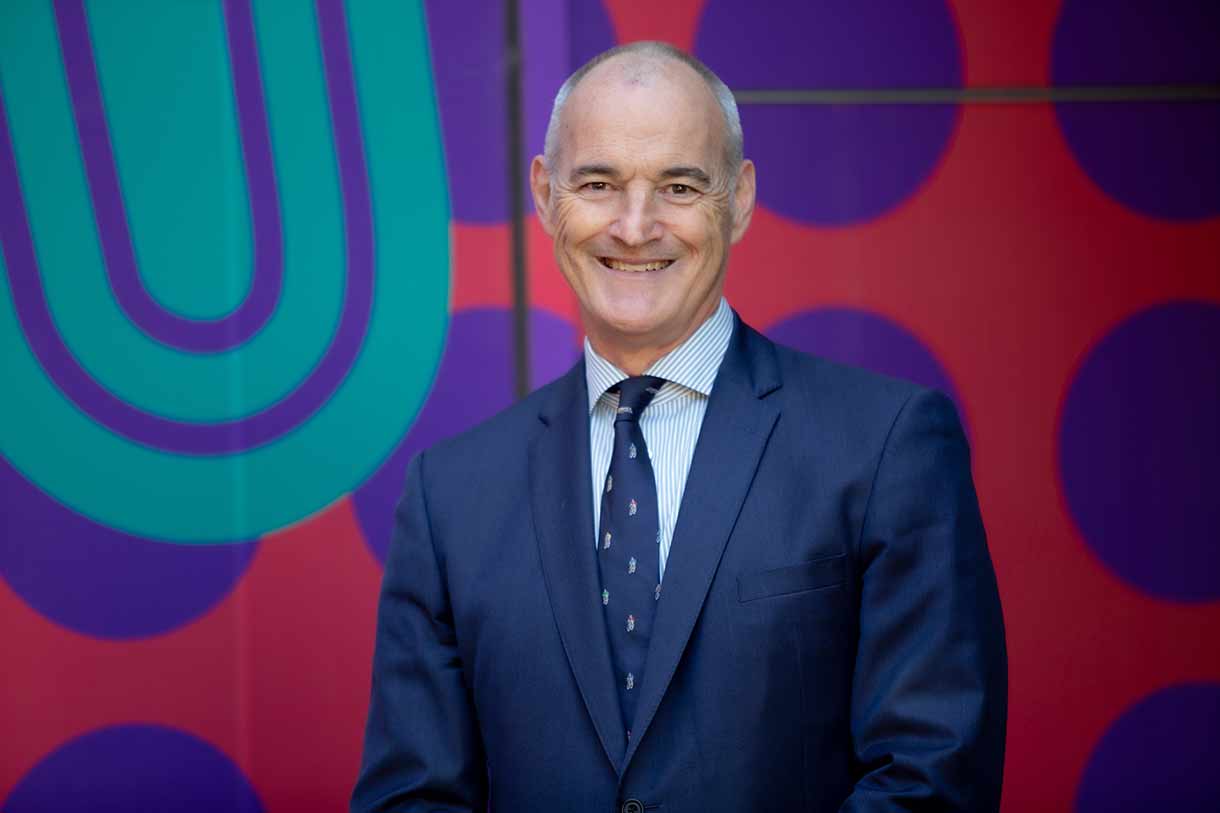
RMIT University is steadfast in its commitment to fostering gender equality and creating an inclusive workplace that celebrates diversity across all genders. Our dedication is exemplified in our participation in the Workplace Gender Equality Agency (WGEA) reporting, WGEA Employer of Choice citation program (citation holder for the past 16 years), and our comprehensive Gender Equality Action Plan (GEAP) for the years 2022-2025.
 Professor Alec Cameron
Professor Alec Cameron
Professor Alec Cameron
Vice-Chancellor and President, RMIT University
Launched in early 2023, RMIT’s Gender Equality Action Plan (GEAP) outlines a structured approach to make RMIT a more equitable workplace, and to ensure it remains that way.
Development of RMIT’s next Gender Equality Action Plan (GEAP) is now underway, with the next GEAP due to be submitted to the Victorian Gender Equality Commission in May 2026. To find out more about the development of RMIT’s GEAP, contact: diversity.inclusion@rmit.edu.au
We know that gender equality is as important for our students as it is to staff. To support our student community, RMIT has created the Student Gender Equity Action Plan 2023 – 2026.
RMIT's intersectional focused approach has garnered international recognition and accolades. Notable achievements include being the first Victorian University to receive two SAGE Cygnet Award awards. Our commitment to reducing inequalities was affirmed when we ranked number one globally in the 2023 Times Higher Education University Impact for work done in SDG 10. Additionally, being awarded Platinum Status by the Australian Workplace Equality Index in 2023 attests to our achievements in supporting LGBTIQA+ students and staff.
In 2025, RMIT retained Disability Confident Recruiter status for the fifth consecutive year. This achievement reflects our continued commitment to creating genuinely accessible and inclusive recruitment pathways for talented candidates with disability and/or neurodiversity.
RMIT’s 2022-2025 Gender Equality Action Plan builds on progress already made, continues work underway and, through tangible objectives that drive meaningful actions, sets out a path to gender equality at RMIT. To view the ways in which we will progress our action areas, please refer to the GEAP downloadable document listed above.
Objective
RMIT commits to an intersectional perspective on gender equality and gender discrimination and embraces intersectionality frameworks at an institutional level—so that systemic, structural, and policy processes are inclusive of all.
Key Action Areas
1.1 Ensure we accurately and progressively understand diversity within gender and our broader workforce profile
1.2 Continue commitment to the inclusion of all Diverse Genders Sexes and Sexualities
1.3 Remove barriers to cultural inclusion impacting career advancement and representation
1.4 Prioritise support and promotion of the Aboriginal and Torres Strait Islander Employment Strategy and Workforce Plans
1.5 Identify and implement inclusive employment practices that promote gender equality, inclusive of people with a disability
Objective
Future proofing RMIT through inclusive governance and leadership.
Enable managers to lead effective change locally and build an inclusive culture through everyday decisions and actions.
Key Action Areas
2.1 Sustain leadership commitment to gender equality
2.2 Continue to review and support existing and emerging gender equality governance working, groups, committees, and networks
2.3 Provide transparent gender equality reporting
2.4 Participate and contribute to external benchmarking
2.5 Develop revised gender equality targets to support gender composition at all levels of RMIT
2.6 Achieve gender equality pay gap targets
2.7 Align planning activities and develop localised interventions
2.8 Strengthen diversity in governance and decision- making
2.9 Achieve STEM Athena SWAN Silver Application and Cygnet Awards
2.10 Contribute to the UN Sustainable Development Goals (SDGs), particularly SDG 5, gender equality
Objective
Increase the proportion of professional, vocational, and academic women at RMIT at all levels and address identified barriers that prevent more women from seeking opportunities and progressing their careers.
Key Action Areas
3.1 Increase attraction and recruitment of women and under-represented genders
3.2 Acknowledge and enable student pipeline through engagement outreach and employment
3.3 Build capability in Inclusive Hiring and Decision Making, through the full employee lifecycle and career pathways
Objective
Increase proportion, participation and career fulfilment of women, and ensure representation including but not limited to Aboriginal and Torres Strait Islander Women, culturally and linguistically diverse women, women identifying within the spectrum of diverse gender and sexualities, women who identify with a disability: “If I can see it; I can be it”.
Key Action Areas
4.1 Remove barriers to career opportunities and promote active sponsorship
4.2 Review Academic Promotion, including progression, reward, and recognition
4.3 Support and review transitioning career opportunities, including into secure careers
4.4 Review gendered impacts of workload management
4.5 Reduce gendered impacts on flexible and hybrid working
4.6 Remove barriers impacting visibility and participation of women
4.7 Increase access to leadership programs and talent identification, sponsorship, and development
Objective
Support gender equality in caring responsibilities and career progression for all carers improving management of career disruptions and transitions.
Key Action Areas
5.1 Focus on induction, advancement, and retention, in moments of transition
5.2 Improve parental leave utilisation, resources and supports
5.3 Improve caring resources and communication
5.4 Improve access to Fertility and Gender-Based Health Care leave
5.5 Support workforce participation and transition into retirement
Objective
Grow RMIT’s inclusive, respectful culture supporting diversity and gender equity through enterprise-wide action and local leadership.
Key Action Areas
6.1 Advance and promote gender equality and the prevention of gender-based violence in systems, structures, strategies and policies.
6.2 Prevention of, and response to sexual harm and violence (inc. discrimination, everyday sexism, and bullying)
6.3 Support for staff impacted by domestic and family violence
6.4 Advance gender equality and the elimination of gendered violence as a shared responsibility 6.5 Prioritise elimination of gendered violence in partnership and in support of our wider sector and community
6.6 Improve access and resources to mental health support, including trauma/sexual violence support
RMIT has made significant strides in promoting and advancing gender equality for all employees. The Gender Equality Commission has confirmed that RMIT is compliant with the seven gender equality indicators, highlighting our commitment to creating an inclusive workplace. The following tabs are a summary of progress made, more detail can be found in the linked Excel document.
As we progress through the implementation of the RMIT Gender Equality Action Plan 2022-2025, our commitment remains unwavering.
You can view more detail on the progress against each action within RMITs Gender Equality Action Plan (GEAP), and progress against the seven gender equality indicators in the below excel document.
Content Warning: This report includes content and commentary on sexual harassment, sexual assault, and family and domestic violence, which may be distressing. Please prioritise your wellbeing while reading. If you find the content distressing and are an RMIT community, please reach out to support services Safer Community.
RMIT has taken an intersectional holistic approach when implementing GIAs through the Sustainability and Equity Evaluation (SEE) Tool. This is a direct response to RMITs compliance requirement under the Victorian Gender Equality Act for ‘gender impact assessments’ to be applied across all new and reviewed programs, policies and services that have a public-facing impact. At universities ‘public’ means ‘students.
RMIT’s approach to creating this tool brings in a number of additional aspects to look at our programs, policies and services through numerous lenses:
RMIT also has other legal requirements (e.g. the Disability Discrimination Act) and organisational commitments (e.g. UN Global Compact) to support and report on social, environmental and governance outcomes.
These findings highlight RMIT’s ongoing commitment to gender equality and the progress made in various areas, while also identifying areas for further improvement.


RMIT University acknowledges the people of the Woi wurrung and Boon wurrung language groups of the eastern Kulin Nation on whose unceded lands we conduct the business of the University. RMIT University respectfully acknowledges their Ancestors and Elders, past and present. RMIT also acknowledges the Traditional Custodians and their Ancestors of the lands and waters across Australia where we conduct our business - Artwork 'Sentient' by Hollie Johnson, Gunaikurnai and Monero Ngarigo.
Learn more about our commitment to Indigenous cultures